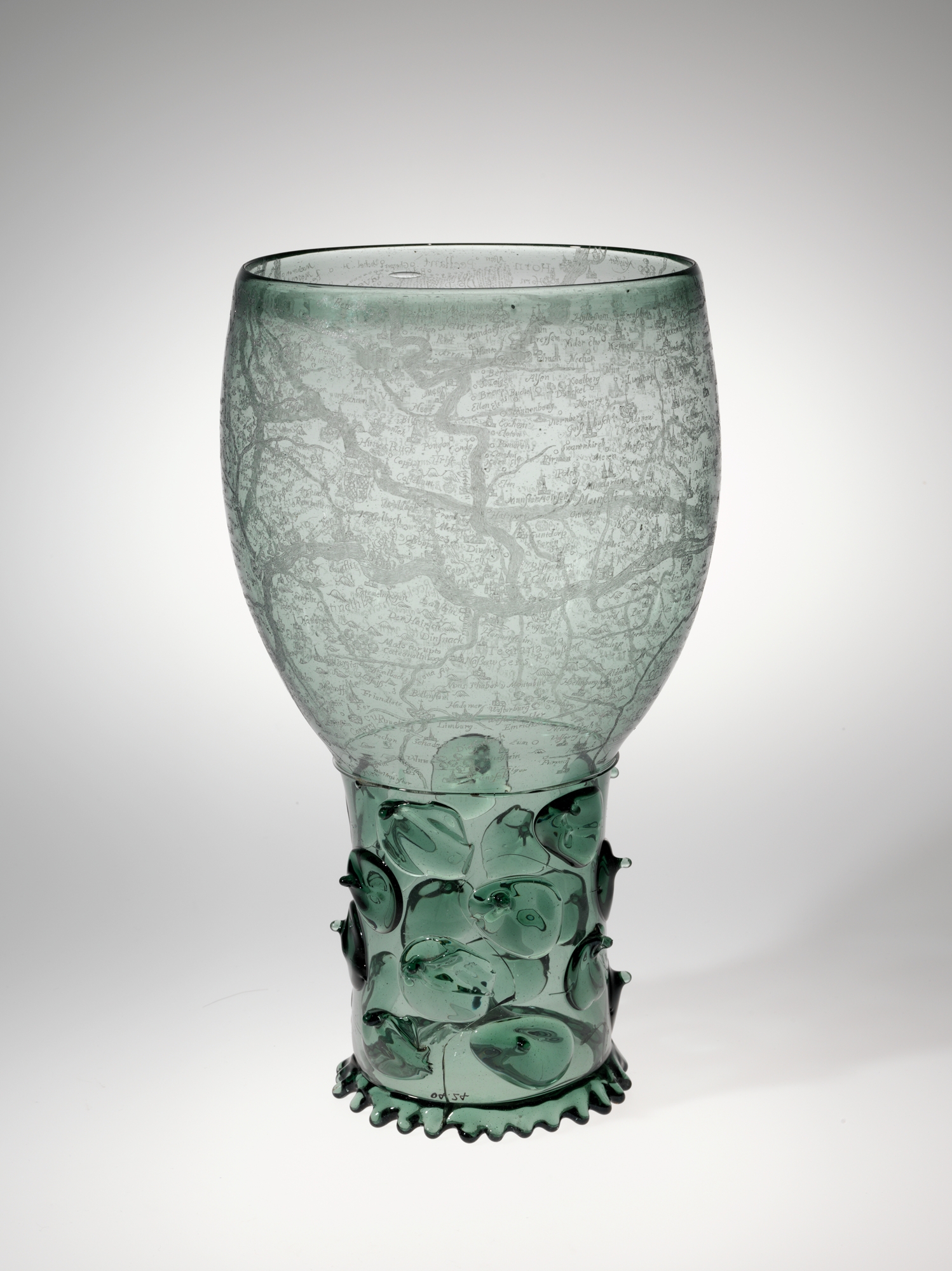
Courtesy Metropolitan Museum of Art, public domain
Image https://www.metmuseum.org/art/collection/search/188923
This kind of elegant, green glass goblet or Roemer is often featured in Dutch still lifes and depictions of domestic scenes from the period. More simple versions of this popular glass for festive occasions may have graced the table of well-to-do households in New Amsterdam.
Metropolitan Museum summary: A highly-skilled diamond point engraver was responsible for the intricately rendered map depicting the course of the Rhine river from Mainz to Utrecht, drawn after an illustrated map published in Cologne in 1555 by Caspar Vogel, a noted mathematician and cartographer. This particularly large and elaborate beaker would have been filled with wine and passed around at festive occasions. Both decorative and functional, the prunts on the stem may have steadied a greasy-fingered drinker’s grip on the glass at a time when forks were not commonly used.
Related literature: https://www.evelynmeynard.com/essays/the-broader-context-of-the-cartography-engraved-roemer-at-the-metropolitan-museum-of-art
Title: Goblet (Roemer) with map of the Rhine River
Date: early 17th century
Culture: Dutch, probably Amsterdam
Medium: Glass, engraved with a diamond point
Dimensions: H. 11 1/4 in. (28.6 cm.); Gr. D. 5 7/8 in. (14.9 cm.)
Classification: Glass
Object Number: 04.24

